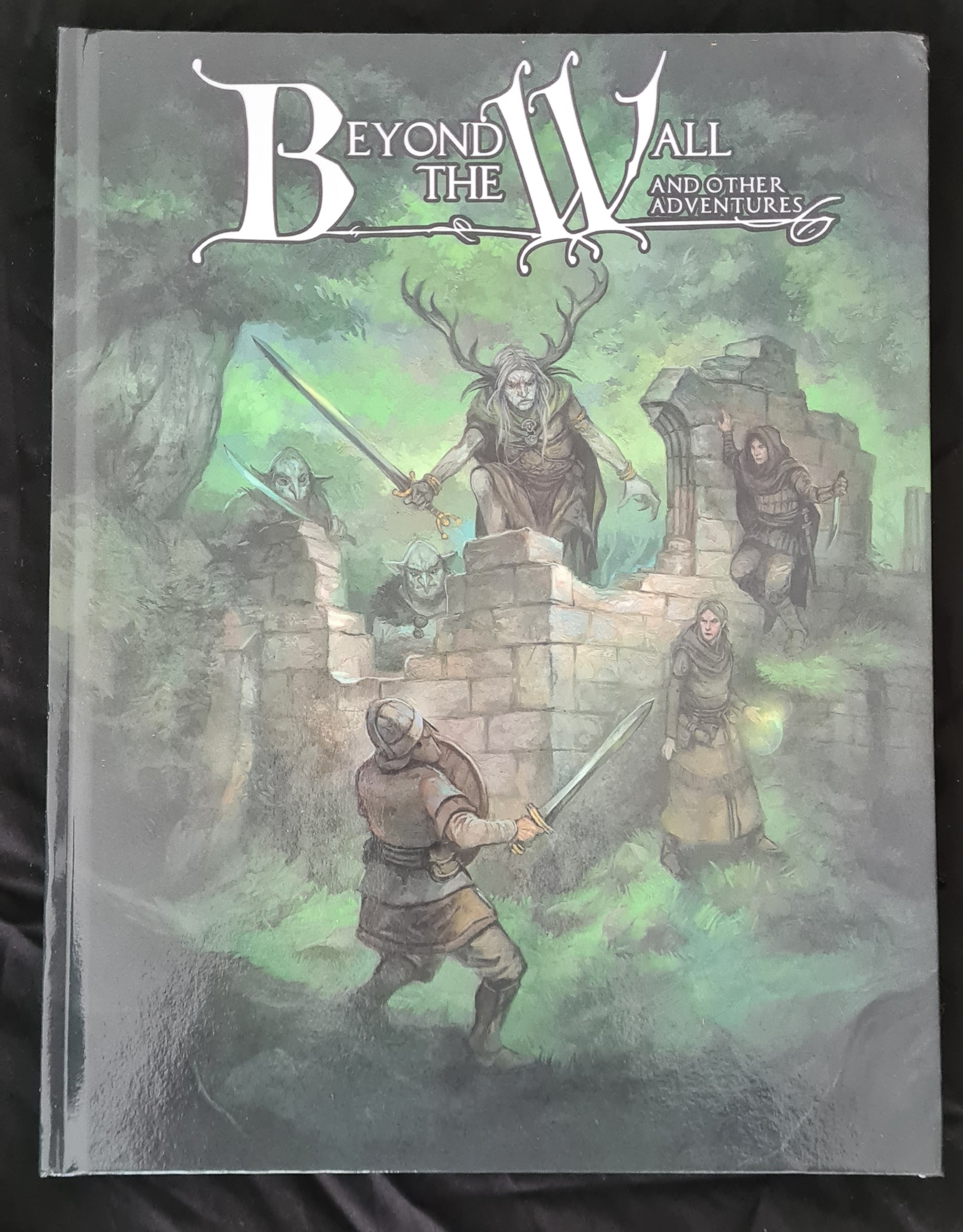
Last update:
$Id: btw.md,v 1.4 2023/04/16 11:29:41 cvs Exp $
Whenever I played pen and paper role playing games (RPG), I played them in a group with multiple persons and a game master (GM). During the pandemic, I discovered the concept of solo role playing gaming, where you are the player and the GM in the same role. Thanks to a friend, I was introduced to Ironsworn, a RPG that is especially designed to be played solo. My interest was even boosted further when I got introduced to the YouTube channel Me, Myself and Die where the Canadian voice actor Trevor Devall plays tabletop and other RPGs solo. He does an extraordinary job, so a must watch recommendation from my side if you're into RPGs.
This article here describes some of the materials and tricks I use to play Beyond the Wall (BTW) solo. BTW is an Old School Revival RPG where your player characters (PC) are not the experienced and wise heroes that already travelled the world, but instead young members of a village who grow up and experience adventures round their home village. While you can play BTW as a D&D replacement, its strength lies in this special setting.

BTW core ruleset plus expansions. Of course, you need the core rule set for playing. If you can afford it, I highly recommend to get the extensions Further Afield, Hereos Young and Old and Dangers Near and Far. The extensions provide you with more options, new spells, new character playbooks, new scenarios and new races to play. As with the core rule set, they are well written and worth every penny.
D&D Solo Adventures Toolbox. Since BTW is rule wise similar to D&D, you can easily use Book 1 and Book 2. Both books contain a lot of random tables allowing you to create urban, wilderness, NPCs and dungeon encounters on-the-fly. They support you in creating random taverns, cities and dungeons. I use them especially to create quests and monster encounters. Since the same monsters sometimes have different stats in D&D and BTW, you have to see which monster with which stats works better for you.
Official D&D Material. The following books can also help you create random events, quests, encounters and NPC. D&D Dungeon Masters Guide, D&D Xanathar's Guide for everything and D&D Monster Manual. Xanathar's guide is especially useful for creating traps, magic items and has lots of tables with names. The monster manual offers a rich collection of monster your characters might encounter. It is referenced heavily by the random tables in the Solo Adventures Toolbox, directly with matching page numbers. While you can use any D&D material you might own, the links above and the solo toolbox assume that you own D&D fifth edition (5e).
Solo GM Guide written by Geek Gamers. While this book also contains some random tables, its real value lies in the explanation on how to do solo RPGs. It covers how you can and should bend the rules, common pitfalls, how to work with smaller and bigger rule sets and how you can develop your own story.
Since I play usually one character or two at most, I modified several rules of BTW a bit. If I would strictly follow the rules and encounter a horde of monster, my character would be dead quite fast.
Healing Usually in BTW, a character heals 1 HP per night of good sleep. For solo play, my PC gets 1d8 HP per night of good sleep. And if they sleep in their own bed in the village, they get all HPs restored over night.
HP on level up. Usually, a character gets the result of a hit die roll plus CON modifier on level up. My solo PCs get full hit die plus CON modifier on level up.
XP distribution When I play a party of two PCs, they all get the same XP points for defeated monsters, etc. I don't divide the XP equally.
Exchange characters BTW offers dozens of different character playbooks and from time to time I want to play a different character. Instead of starting from the beginning, I introduce the new character to my storyline and exchange an existing one with the new one. Example: the brother of my current main character returns to the village from his adventures far away. I now play the new brother and the other one remains in the village to help his parents, marry or whatever event comes up in your imagination. The new character gets the same level as the old one and maybe they also exchange goods like weapons, gems, etc.